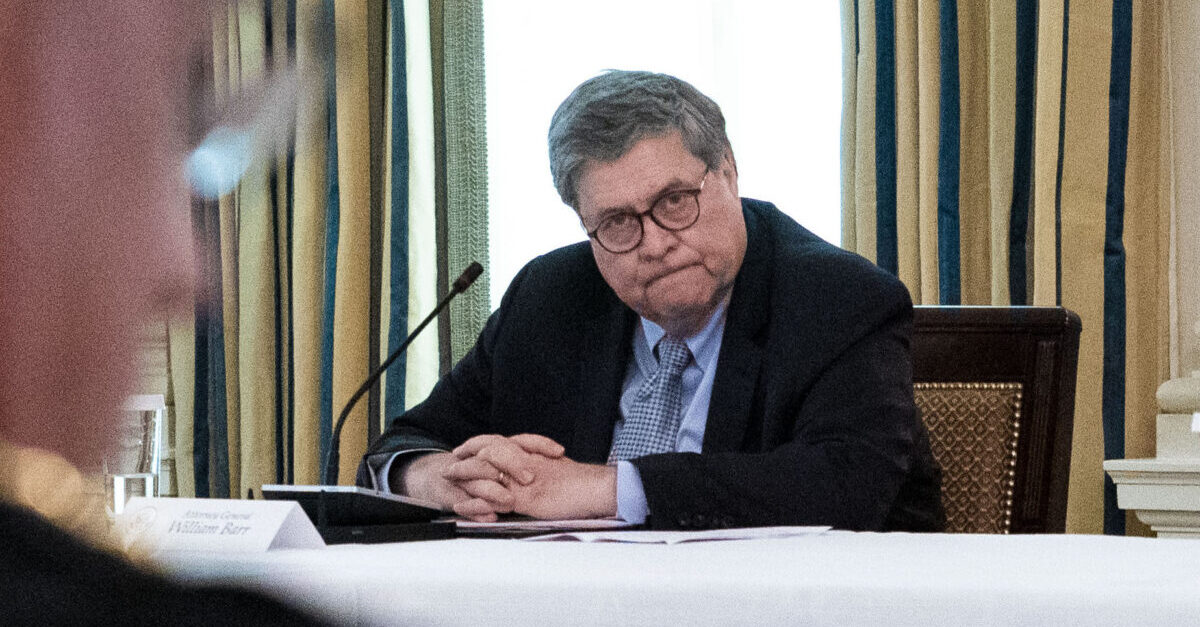
The Department of Justice on Wednesday invoked protests over the killing of George Floyd to argue in court that California’s restrictions on in-person protests related to the coronavirus pandemic should be invalidated.
The DOJ’s argument is contained in an amicus brief that was filed in the U.S. Court of Appeals for the Ninth Circuit. The document was submitted to support a complaint filed by two California citizens, Ron Givens and Christine Bish, who were denied permits to stage protests against Democratic Gov. Gavin Newsom’s COVID-19 executive orders. The governor initially banned all public gatherings but later revised his orders to allow groups of either 100 people or 2- percent of an area’s maximum capacity, whichever is smaller.
Givens wished to hold a peaceful protest of the state’s pandemic-related delay in processing background checks for gun purchasers. Bish wanted to hold a peaceful protest encouraging the state to lift its pandemic-related restrictions.
Though the restrictions have been eased since the lawsuit was first filed, the DOJ argued that the case is not moot because both protests anticipate between 500 and 1,000 individuals.
The DOJ’s central argument was that California’s now-outdated initial ban on public gatherings was incorrectly evaluated by the lower court, which granted too much deference to government authority based on the public health crisis. However, the department also invoked recent protests over George Floyd’s death, asking the appellate court to remand the case back to the district court to review whether the new restrictions are only being enforced against some protests and not others.
“Finally, on remand, the court must consider whether the new guidelines are being enforced in a viewpoint-neutral way,” the brief stated.
Here’s more of the DOJ’s argument:
Our country’s response to George Floyd’s tragic killing has shown the importance of peaceful public protests to maintaining our civic fabric—and has highlighted the extreme nature of California’s earlier blanket protest ban. Over the past weeks, in California and across the country, hundreds and, in many cases, thousands of people have gathered to express outrage and demand justice. California’s political leaders have expressed support for such peaceful protests and, from all appearances, have not required them to adhere to the now operative 100-person limit. Going forward, it could raise First Amendment concerns if California were to hold other protests, such as those proposed by plaintiffs here, to a different standard.
The brief does not appear to address the fact that while Givens and Bish were both seeking government-issued permits to hold pre-planned demonstrations at particular locations, the protests sparked by Floyd’s killing were organic in nature and never appear to have sought government approval.
The brief was filed as part of Attorney General William Barr’s April 27, 2020 initiative directing the DOJ Civil Rights Division to review state and local policies to ensure that civil liberties are protected during the pandemic.
“Now more than ever, Americans are exercising their First Amendment right to peacefully protest, and this fundamental right must be upheld even during times of national emergency,” U.S. Attorney for the Eastern District of Michigan Matthew Schneider said in a statement on Wednesday. Schneider and Assistant Attorney General Eric Dreiband are overseeing the DOJ’s effort to monitor state and local policies relating to the -19 pandemic.
READ the full DOJ brief below:
DOJ California Amicus by Law&Crime on Scribd
[Photo by Doug Mills-Pool/Getty Images]
Have a tip we should know? [email protected]